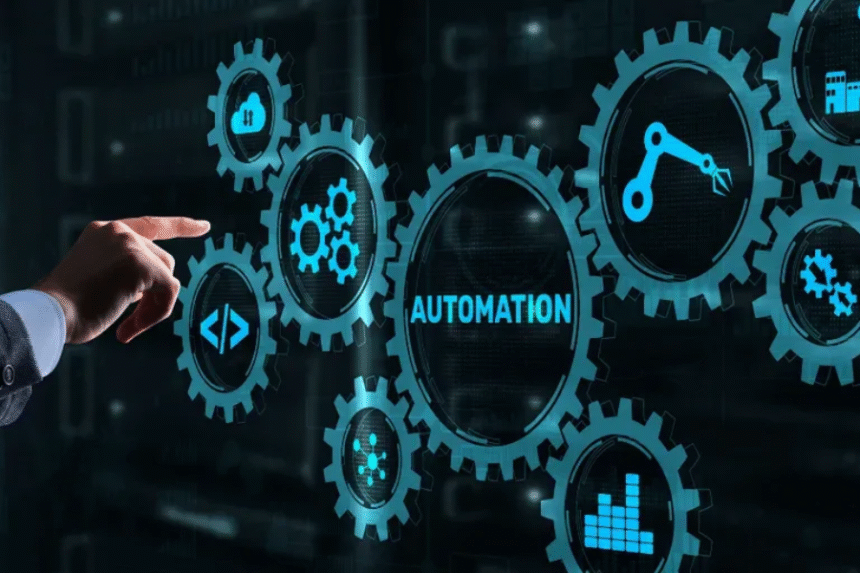The industrial world is changing at a pace never seen before. Driven by the need for efficiency, safety, and scalability, companies are adopting advanced automation solutions to streamline operations and remain competitive in demanding markets. From precision manufacturing to large-scale energy management, automation now touches every corner of the industrial spectrum.
Let’s explore the most transformative automation solutions currently reshaping industrial operations, each offering a pathway to more intelligent, efficient, and future-ready systems.
Advanced Robotics for Repetitive and Hazardous Tasks
One of the most widely adopted automation solutions in recent years is the deployment of industrial robotics. These machines are designed to carry out repetitive tasks, such as assembling components, welding, packaging, or painting, with exceptional speed and precision.
Beyond improving productivity, robotics significantly enhances workplace safety. By taking over dangerous or high-risk roles, such as handling toxic chemicals or working in high-temperature zones, robots protect human workers from unnecessary exposure. Additionally, robotic arms equipped with machine vision can inspect products for defects with remarkable consistency, helping maintain quality without halting production.
Programmable Logic Controllers (PLCs) for Real-time Control
PLCs have long been the backbone of factory automation, but modern systems have evolved significantly. Today’s PLCs offer real-time data processing, remote access, and seamless integration with other industrial equipment.
These compact yet powerful controllers are used to manage processes such as temperature regulation, motor control, and conveyor systems. Their ability to be reprogrammed easily means manufacturers can adjust to product changes, shift schedules, or production volumes without overhauling the entire setup. This adaptability is critical in industries that operate in fast-paced or seasonal markets.
SCADA Systems for Centralised Monitoring
Supervisory Control and Data Acquisition (SCADA) systems are another vital component of current automation solutions. These platforms provide centralised control over vast and complex operations, often spread across multiple locations.
Through sensors and communication modules, SCADA systems gather data from electrical instruments and field devices installed across a facility. Operators can then monitor and control these systems remotely, from pumps and valves to storage tanks and generators. With the ability to track performance trends, set alerts, and log data for audits, SCADA platforms help businesses enhance both efficiency and compliance.
Industrial Internet of Things (IIoT) for Data-driven Decisions
The IIoT brings smart connectivity to industrial environments, linking devices, equipment, and systems via the Internet. These interconnected devices continuously gather, transmit, and analyse operational data, enabling more informed decision-making.
IIoT-enabled automation solutions allow predictive maintenance, where equipment is monitored in real time and repaired before a failure occurs. This proactive approach minimises unplanned downtime and extends the life of machinery. Furthermore, energy consumption can be tracked at a granular level, helping facilities identify and eliminate wasteful practices.
Automated Material Handling Systems
From conveyor belts and Automated Guided Vehicles (AGVs) to robotic palletisers, automated material handling systems have transformed how goods and materials move within factories and warehouses.
By employing such systems, companies can streamline the flow of raw materials, semi-finished goods, and final products. This reduces manual handling errors, improves warehouse space usage, and shortens production cycles. In sectors like automotive and food processing, where timing and hygiene are critical, automated handling ensures consistent, clean, and efficient transfer of materials across stages.
Partnering with Reputable Energy Solution Providers
While the promise of automation is vast, successful implementation depends heavily on the quality of technology and guidance received. This is why many industries choose to collaborate with reputable energy solution providers. These partners bring deep technical expertise, reliable electrical equipment, and tailored deployment support to ensure automation is effective, safe, and scalable.
From selecting the right automation architecture to installing monitoring instruments and control systems, trusted partners offer end-to-end assistance. Their insights also prove valuable in future-proofing the automation infrastructure, ensuring it remains compatible with upcoming technologies and regulatory changes.



